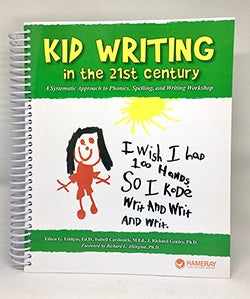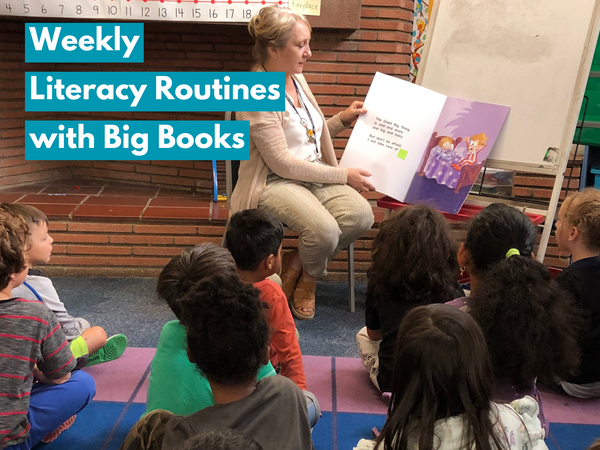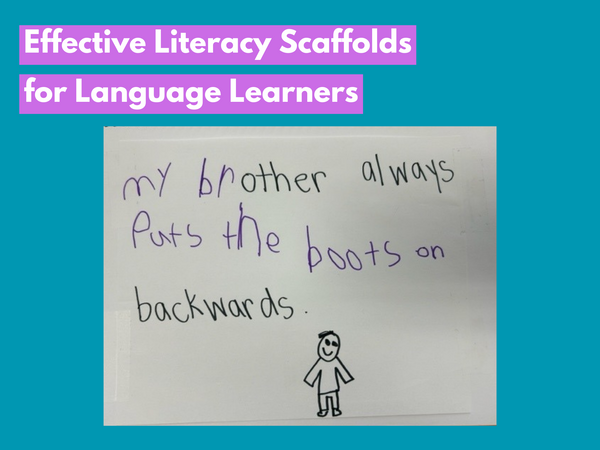Dr. Richard Gentry, "America's Spelling Guru" and one of the authors of the new professional book Kid Writing in the 21st Century , shared a blog post on Psychology Today yesterday explaining why students can't write, what to do about it, and how to use this great new tool to accomplish more in the classroom than you may have imagined possible. Here's an excerpt from his post:
 So what do educators need?
So what do educators need?
We need to be child-centered in the context of meeting kids where they are functioning—when they enter kindergarten. We need to motivate children as writers. It’s crucial to teach basic skills like spelling and handwriting explicitly. Children need a dictionary of academic words in their brains that they can retrieve for writing. Children have to listen to or read poetry as well as good fiction and nonfiction literature to feed their brains as writers. Writers have to have academic vocabularies and deep knowledge for thinking. And vocabulary and background knowledge have to be taught—especially for children in low-income neighborhoods and for English Language Learners who don’t grow up in an English language-rich environment.
To accomplish these curricular objectives teachers need proven, evidence-based practices that have grown from both progressive education and basic skills movements.
The not-so-new wakeup call exposes an important education policy problem on which all educators see eye to eye: “The root of the problem, educators agree, is that teachers have little training in how to teach writing and are often weak or unconfident writers themselves.” (Goldstein, p. 8) The problem—lack of preparation for teaching writing at their grade levels and lack of “knowing how to get started”—is evidence-based and reported by educators in both approaches' camps, with multiple studies showing that (1) how to teach writing isn’t taught in teacher preparation programs and (2) teachers in both camps report lack of confidence.
The Goldsteinaug article poses the question: “Could there be a better, less soul-crushing way to enforce the basics?” For kindergarten and first grade teachers or anyone working with beginning literacy, the answer is “Yes, there is a way.”
Want to know more? You can read the rest of Dr. Gentry's Psychology Today post by clicking here .
~~~







